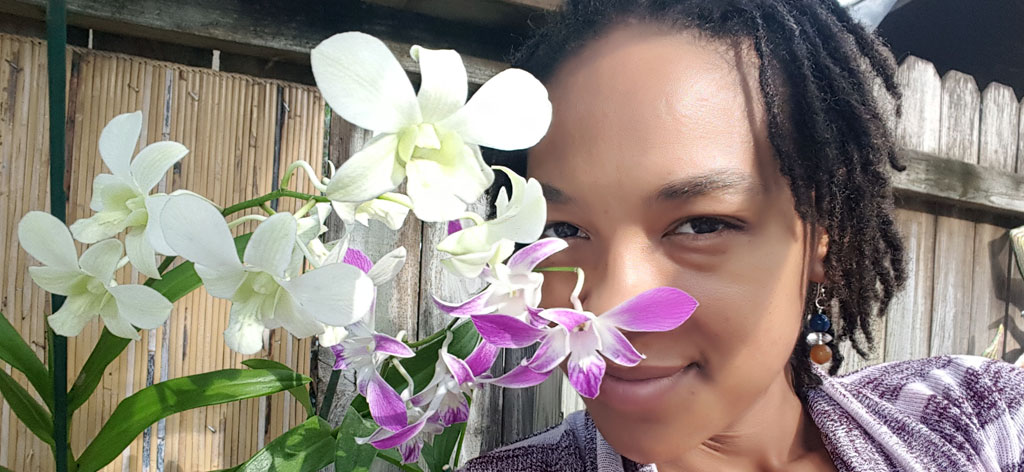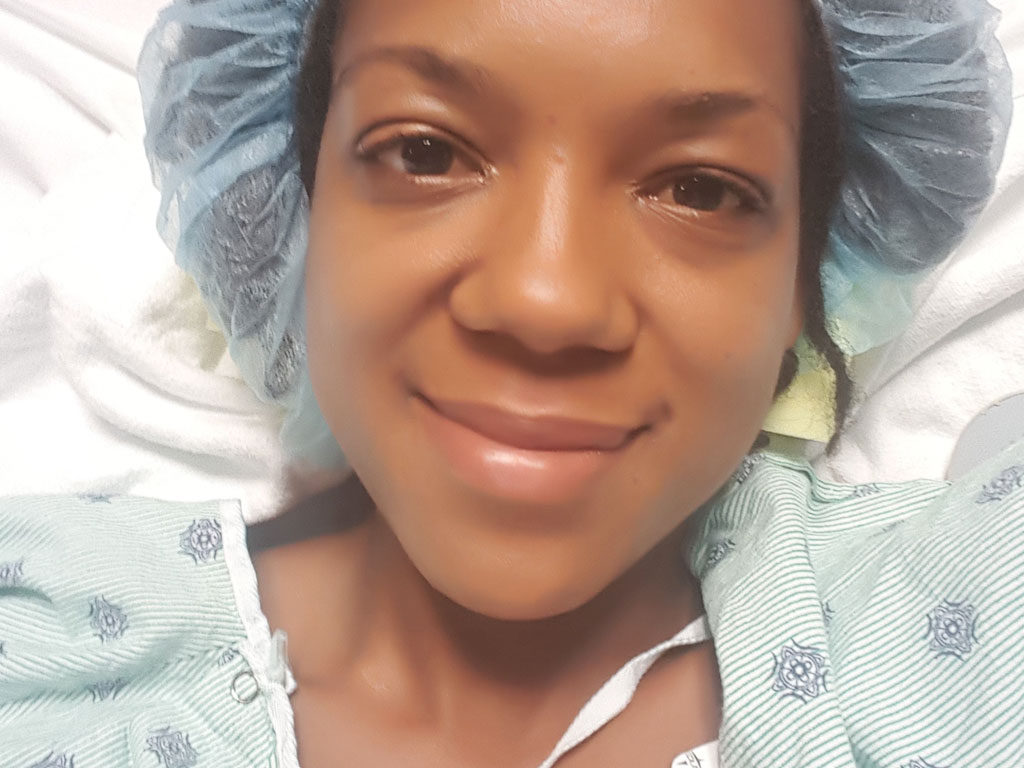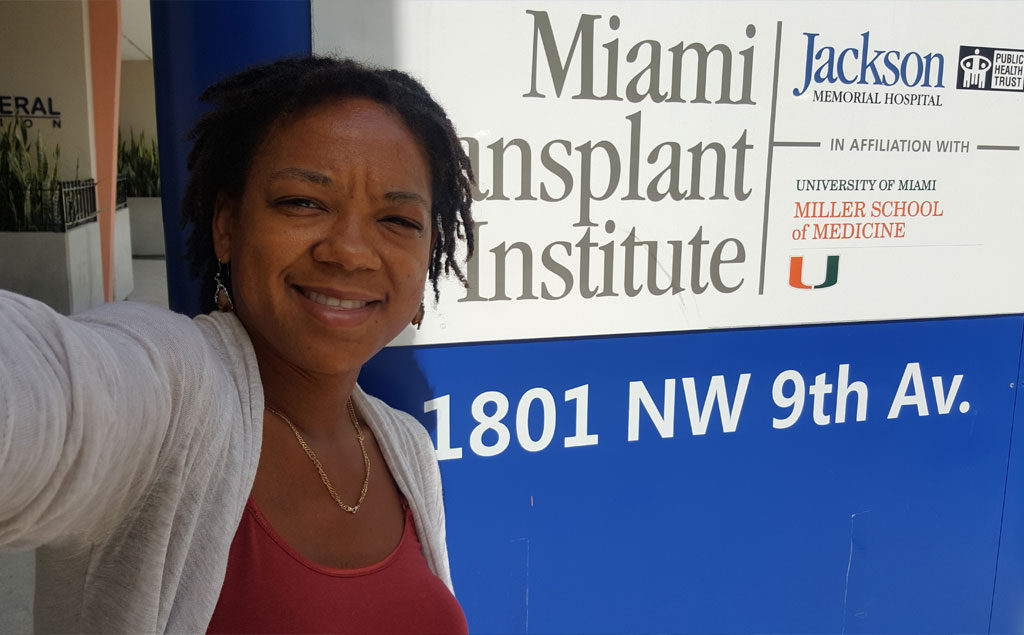Share this Post
For a long time, I was afraid to want a new kidney. I couldn’t see my way clear to having a transplant, so it seemed mad, masochistic even, to dare dream of having one. With no local transplant program, the system in The Bahamas is just not set up for most dialysis patients to have one, much less a public patient with no health insurance. Kidney transplants cost about $200,000 in the US. And that doesn’t account for the on-going post-transplant treatment and care.
Similar to poor children in the public school system who are often written off as candidates for college before they even had an opportunity to aspire, the possibility of a kidney transplant for most public patients is considered a fool’s errand and not worthy of even considering. The Government certainly hasn’t found it worthy of investment; and I’m not just talking about a transplant or insurance program, not even an educational program.
The system doesn’t empower most people and it didn’t support me. And yet, it is still a privilege for a Bahamian to access a kidney transplant. Plain and simple, I was lucky to have been blessed by two angels [And I have lots to share about them].
To fully appreciate my blessings I remember the struggle.
A kidney transplant is one of two primary ways to get off dialysis due to end-stage kidney disease. The other way is on a gurney. I distinctly remember the first time they wheeled someone past me. I was sitting anxiously in the foyer of the Dialysis Unit waiting my turn. I recognized the gurney because of the way the mortuary blanket draped over the body, like a flag covering the coffin of a fallen soldier: straight, stiff and stately. My eyes tracked the gurney as it passed by, and in my mind I said, oh my God, is that a dead body? In my subconscious I said, oh my God, could that be me?
When you’re on dialysis, sometimes it feels like you woke up inside the Matrix: Everyone around you looks comfortable, happy, acclimatized, perhaps even resigned, while inside you are freaking the fuck out. All you can think is: I don’t want to die on this machine. Sometimes I wished I could just rip the needles out and just get off that machine. To live with dialysis is a real battle of the mind because many people will, and many people do die on the machine, having had no opportunity to get out.
Dialysis doesn’t cure you and it doesn’t heal you. It simply buys you time. Some days it feels like people are dropping down dead all around you. Some days it feels like the doctors and nurses don’t care, or for some patients, it even feels like they are trying to kill you. It’s a hurtful thing to hear for a team of professionals who are truly only there to help, but amidst the vulnerability of being on dialysis – chained to a bed in an ice chilled room, depending on machines you hope work, and people you hope love their jobs to keep you alive – this is one of those uncomfortable feelings that sometimes come up. There is no joy in feeling that way.
A medical crisis for a doctor or nurse is very different from a medical crisis for a patient. As a patient, almost every complication, particularly when you experience it for the first time, feels like it is going to kill you or like it could kill you: Whether it’s the warning beep of the dialysis machine or a sudden cold sweat; whether it’s a spike in one of your lab results or a night of diarrhea or vomiting.
The first time I got the chills on the machine it felt like I could die. I didn’t get the chills because the room was cold; I had an infection. When you get the chills, your body violently shivers and your blood eats at you. Unless they cut your treatment short – which comes with its own mind-terrors – you have to endure it. Saline sometimes helps. Sometimes it doesn’t. Blankets sometimes help. Sometimes they don’t.
One time I had to be disconnected from the machine as nothing was helping. The nurses sent me home early, unceremoniously. I wasn’t dying. I was no longer experiencing a medical emergency. But in the hospital waiting room, where I sat waiting for my mother, trying to understand what it all meant, I felt helpless, dejected and traumatized. There were other people in the waiting room but I was alone. Shivering now, not because of the chills, but because I was scared and in crisis.
Death can feel very real when you live a life on dialysis: Transplants, no so much. They don’t feel real. In this reality, it is a daily battle of love and loathing. Part of my journey was finding ways for all of the dualities to co-exist, not in opposition to each other, but in ebb and flow.
It was the quintessential dilemma. Dialysis denied me a certain quality of life; it exposed me to new medical complications and risks, and it often drained the life out of me psychologically and spiritually. At the same time, it was a life-preserving treatment that kept me alive. It was not all trauma and crisis. Sometimes it is very mundane, routine and I dare say, pleasant. My sleeps on the machine were legendary. So many people cared for me, inspired me, and went out of their way to look out for me: nurses, doctors, patients. Dialysis nurses, in particular, are a special brand of nurses. And there is a shortage of them, which puts extra pressure on those who do serve. I took my chances on dialysis when I was at my lowest and in turn, dialysis gave me a chance to live. It is something I didn’t fully appreciate until my last dialysis treatment before the transplant.
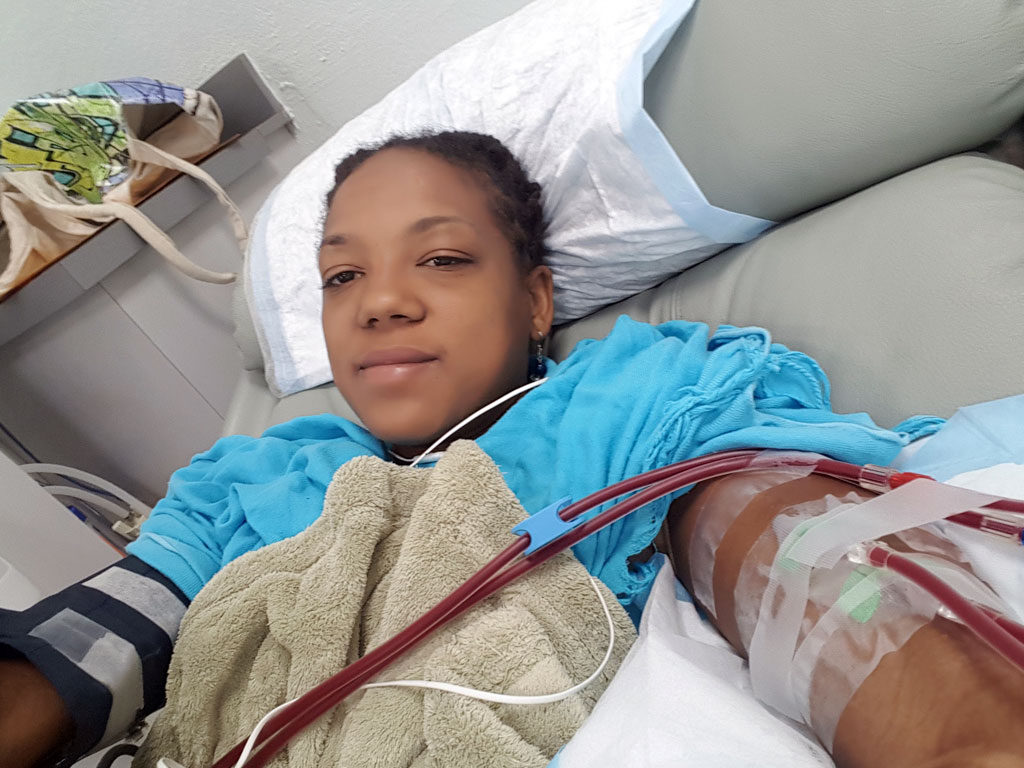
My last dialysis treatment in Nassau before heading to Miami for my transplant. The doctors and nurses at Renal House and PMH sure took care of me. Forever grateful.
So, when I was on dialysis I didn’t train my mind on a transplant. I made up my mind from early on that I would get a transplant. I didn’t know how and I didn’t have a plan, but I just knew. When I was on dialysis, my mind was on acceptance; making peace with dialysis; living and thriving with dialysis, because I couldn’t receive a transplant if I didn’t survive long enough to manifest one. And I couldn’t manifest one if I had lost my will to live or my passion for life.
I got out of dialysis and it wasn’t on a gurney and for that I humble myself and give thanks.
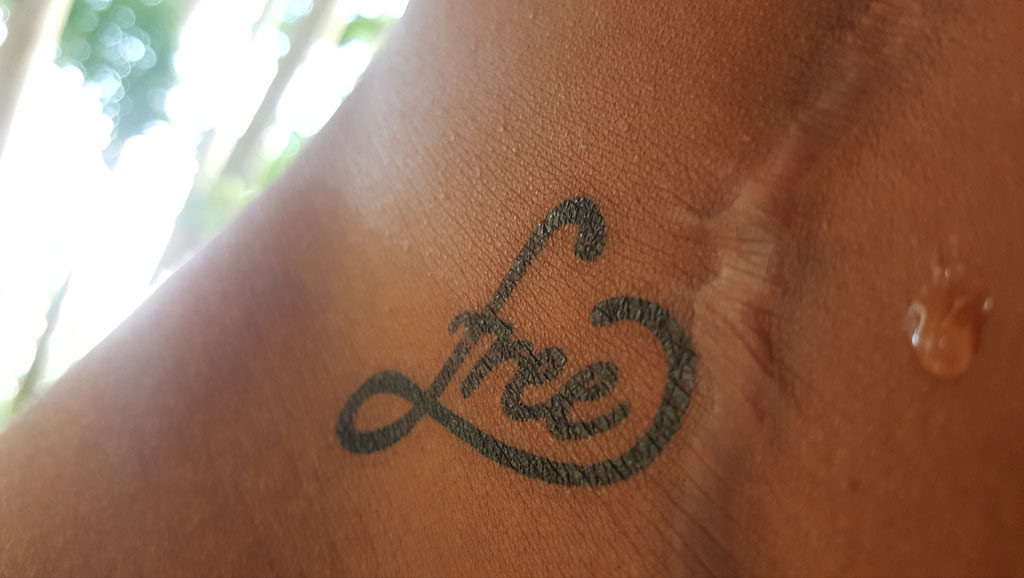
Not a scar but a mark of freedom from dialysis; a symbol of love from my donors and support squad; and skill from my doctors and medical team.
As I write about my journey I do so towards advocating for a system that allows others the option of a kidney transplant not by serendipitous circumstance. Transplantation is a very involved and complex process, but for those who so desire and are medically fit, there should be a process that empowers them to pursue this dream in a systematic way.
